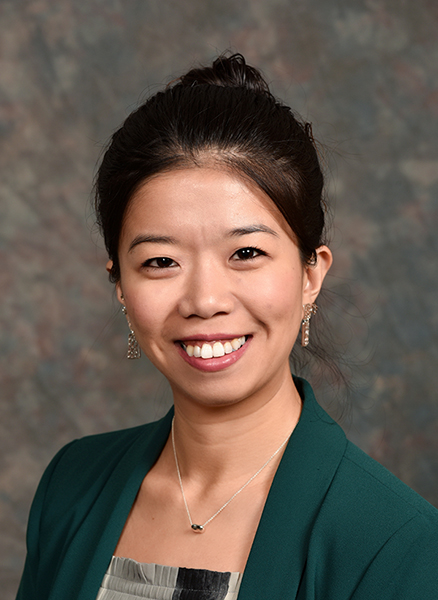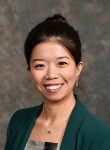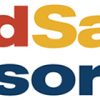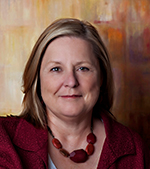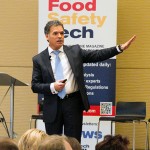It was a great pleasure to sit down with Jennifer Crandall, CEO, founder and owner of the Safe Food En Route, LLC. She has more than 20 years’ experience in food safety, and tremendous experience as a business entrepreneur.
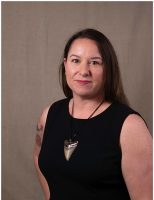
Jennifer started her career in production for a variety of products after she graduated from Purdue University as a Food Science major. When she looks back at her career path, Jennifer says all the dots are connected together in getting her to where she is now—as though she was leaving her own “breadcrumbs” in each stage, and now everything has come back together. For example, after she spent eight years on the production line, she took a position at Kroger Manufacturing for the next 12 years, where she had opportunities to work at positions in corporate food technology, regulatory compliance and global sourcing roles. Jennifer said, “it was a detour at the time when I took the sourcing position, however, it was these last two positions that set the foundation and knowledge when starting Safe Food En Route“…“I went the path of least resistance, what felt right at that time, and that natural interest just linked to the next opportunity. Each time I moved around, I either learned something new or developed another skill—that’s what motivated me. I left myself breadcrumbs along the way, so when I looked back, I knew where I had been,” she said. “I don’t regret any of the decisions that I made in getting me into the position where I am today.” Jennifer shared one quote she learned from Kathy Beechem, a retired EVP of US Bank: “When you are facing two choices, always take the path with the most opportunities!” “Her words still have an impact on me. Every time I make a choice, I choose the one that gave me more opportunities to grow,” Jennifer said.
We ended our conversation with some tips Jennifer would have given to her younger self, back 20 years ago. First: Use your network more, and do not be afraid to ask more questions. Second: Do not be afraid. You have unlimited potential and are destined for great things. Decide what you want with all your heart and focus on it.
“All in all, it is crucial to understand what you want, and understand who you are!” Jennifer said.
Melody Ge: Every time I speak with you, you are very confident and comfortable in the conversation. What tips can you share on being confident?
Jennifer Crandall: Thank you, and I think it still comes with practice. There are three things I think I would like to share.
- Be prepared. The more prepared you are, the more confident you will be.
- Be on time and enforce your own boundaries. Be realistic with the time you need for preparation; you can’t prepare for everything, especially if it’s a discussion. But give yourself the space and grace to have that preparation time within the boundaries.
- Recognize and understand your own needs, simply as knowing yourself. It’s probably a good tip to reemphasize and work in a lot of other situations. It’s surprising how many people that do not self-reflect. I see many people living their life like a pinball machine, not knowing where they are going. That will show that they lack confidence, because they are waiting for someone to tell them where to go. Women especially will wait on other people to tell them what they are good at. If you are waiting on someone to tell you your strengths, then you are going to be waiting your whole life, because you are never going to believe what other people tell you. So know yourself, your strengths and your weaknesses.
Ge: Why and what persuaded you to start your own business? Do you have any advice for females out there who are interested in starting their own business?
Crandall: I wrote down several version of answers for this [question] and they all kind of fall into four buckets: Professional, Inspiration, Timing, and Trusting myself.
To start from personal experience in my professional life, I was feeling really burned out at one stage with corporate, and I knew I needed to change my career. I also recognized a pattern in corporate life; and in reality, people need to live their life beyond their career. At the same time, my family member was having a heart problem, and a colleague passed away from an illness soon after he retired. In addition, I had a friend’s husband pass away from cancer. All these combined circumstances caused me to reflect, as I already had some thoughts about the meaning of life. Life isn’t about just moving up in the corporate ladder.
Moving on to Inspiration: An inspiring moment happened around that time, as one of my female colleagues who was a counterpart left the company. She left a couple years before I did, and had no plan—she just wanted to take a pause in her career. I was like, “How is that even happening, what are you talking about?” She told me she did this after reading the book, The Escape Manifesto Book: Quit Your Corporate Job. Do Something Different! The book is about how people use the skills they learned from corporate careers and implement them outside the corporate environment. That day, I downloaded the audio book, and started listening to it. I listened to it 13 times during the year of 2017 (it’s a short book), and it really gave me some things to think about. I was inspired, and I am still using some of the tools the book recommended today to run my own business.
Timing: FSMA was perfectly timed with the opportunity for me to launch a business around FSVP consultation because implementation of the regulation was beginning, and Kroger had just trained me on it; I was having so many conversations with suppliers in my final Kroger position as a supplier verification program manager. In addition, I picked up about 2500 connections from my global sourcing role, and everything was really coming together. Again, like the breadcrumbs, the dots are finally connected.
On Trusting Myself: I was inspired by an interview between Oprah and Maya Angelou to write down all the people that influenced me to the point I was at in my career. I ended up with a list of hundreds of people that supported me to the point I was in life. I realized I did not fully believe in myself, but all these people on the list did. And I thought, “If they believe in me, why can’t I believe in myself?” So trusting myself is like the last kick to give me the courage to take the leap. Once I knew what I was going to do, those four factors kicked in at the same time to push me forward with my own business with confidence.
Ge: Based on what you have learned from your own career, what advice would you give to female professionals?
Crandall: Three things come to mind:
- Believe in yourself that you are worthy and deserving of anything you want in your personal and professional life. It is allowed, you are allowed, and as long as they do not negatively impact people, you are allowed to have them. As women, I think we always put ourselves last and never believe we are allowed to have those things. We are.
- Nothing beats a good friend, mentor or a coach. They will take you far. We need friends that can help give us unbiased judgment and coaching to help lead our lives. I was an athlete growing up; 25 years after being on the diving board, I still learn things from diving and from my coach. I am fascinated how the physics side of sports and the coaching can continue to help me in my real life. Coaching has guided me to where I am today. Right now, I hired a coach to guide me on how to be a better CEO and entrepreneur; how to streamline my business. And in thinking about mentors, they can be anyone, for example, listening to audio books, watching an interview, who is influencing you… those all can be mentors.
- Don’t limit yourself. It happens either through allowing others to limit you, or you may do it through limiting your own beliefs around other people. There are no limits on you or what you can do except how you allow other people to put them on you; or you may allow systems or structures to limit yourself. I learned that I am limitless—and there was a time when I didn’t know I was. It can still be scary now to say that I am limitless. But I do believe it. I went through a lot of what coaches call “limiting beliefs” before I got to this point.
Ge: Do you have any final tips for female students and those professionals who are working towards being on an executive team?
Crandall: For students I would say, be patient and spend time in the field. For example, spend five to 10 years to master your skills on the production floor, take time learning quality assurance and food safety systems. Learn the basics and master it. I know it is hard, but it is worth it.
For those who are working towards being in an executive position, I would say think in a business manner. In some form or fashion, add business to your knowledge and thoughts. It doesn’t have to be earning an MBA degree, but at least learn some skills to know what it is involved in being a business person—i.e., things like sales, networks, marketing, finances, and accounting. You don’t want to start an executive position without having some basic knowledge of how a business runs. Make risky choices as often as possible and make the uncomfortable comfortable. My coaches often repeat this, and I want to share it with the group. Take those risks and learn to speak the language that professionals at the executive table often speak.

